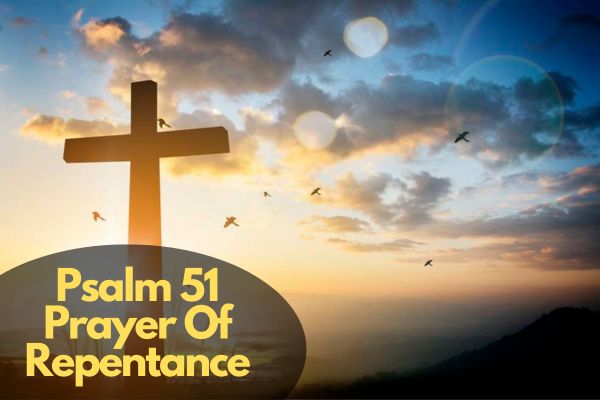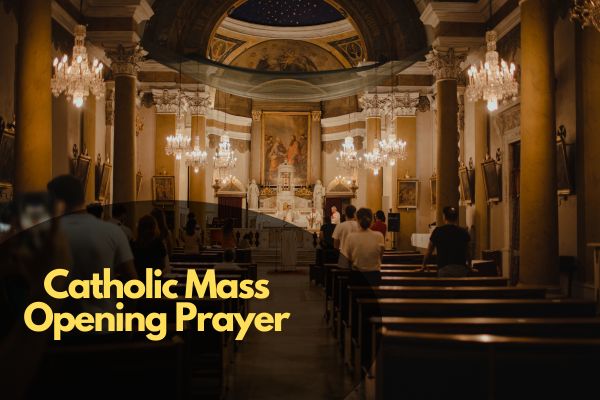Psalm 51, attributed to King David, is a strong and moving declaration of genuine repentance. Composed in the aftermath of his indiscretions with Bathsheba and Uriah, it goes beyond personal confession to become a universal examination of human sin and God’s limitless grace.
Psalm 51 Prayer Of Repentance
When faced with our terrible transgressions against the holy God, God’s people have long looked to David’s words in Psalm 51 as a model for how to pray. As to the psalm, granted, its language of “hyssop,” and “burnt offerings” (not to mention David’s apparent claim that God is the only one wounded) may conjure up imagery that is unfamiliar to God’s people of the new covenant. Psalm 51, however, offers great direction for prayers of repentance. This post aims to demonstrate how Psalm 51 might assist us in confessing our sins.
- A Heart Cry for Mercy
The psalm begins with a cry out for God’s mercy. David confesses his faults and asks God for “mercy according to your steadfast love” and for God’s abundant grace to “blot out” his transgressions. This focus on God’s love prepares the listener for a prayer that acknowledges human frailty but ultimately depends on God’s forgiveness, which is the foundation of Christianity.
- Unflinching Self-Confrontation
David does not downplay the seriousness of his transgression. Declaring, “My sin is always before me,” he expresses his continual awareness of his transgressions and their consequences. True repentance requires this unwavering self-awareness because it enables sincere regret and a desire for total regeneration, two essential qualities stressed in Christian teachings.
- Craving Inner Transformation
David is not satisfied with just being absolved. Seeking God to “purge me with hyssop, and I shall be clean; wash me, and I shall be whiter than snow,” he expresses his desire for inner purification. While ritual cleanliness is suggested by this picture, it ultimately alludes to a deeper need for a changed heart and revitalized spirit, which are essential components of the Christian concepts of conversion and sanctification.
- Restoring the Broken Fellowship
David understands that in addition to hurting him, his immorality has wrecked his connection with God. He implores God to “not cast me away” and “restore to me the joy of your salvation.” This yearning for reestablished contact is a reflection of the core of Christian repentance, which is to repair the bridge between mankind and the divine via God’s love and reconciliation.
- Beyond Personal Need
Despite its basis in human guilt, Psalm 51 transcends individual confession. David declares, “Then I will teach transgressors your ways, and sinners will return to you.” His act of repentance becomes a transformative act, a beacon guiding others back to God’s path and a real-life illustration of the Christian mission to share the good news of salvation and healing.
- A Legacy of Hope
For those who are seeking spiritual renewal or who are grappling with guilt, Psalm 51 remains a ray of hope. It serves as a reminder that repentance and faith—two fundamental tenets of the Christian faith—allow us to always approach God’s forgiveness and the potential for inner development, regardless of the depth of our transgressions.
- Facing Sin Head-On
David doesn’t shy away from the enormity of his sin. He declares, “My sin is always before me,” a constant reminder of his guilt and the weight of his actions. This unflinching self-awareness is crucial for true repentance, as it allows for genuine remorse and a desire for complete renewal.
- A Tale of Remorse
For those who are seeking spiritual rejuvenation or who are grappling with guilt, Psalm 51 continues to be a timeless source of hope. It serves as a reminder that God’s forgiveness and the potential for personal growth are always accessible, regardless of how serious our transgressions may be. Psalm 51 continues to lead people and communities on the path of repentance and spiritual development because of its unvarnished faith in God’s love, heartfelt yearning for mercy, and genuine honesty.
Conclusion
As we wrap up our study of the Psalm 51 Prayer of Repentance, we find ourselves immersed in the eternal echo of King David’s sincere plea. This profound prayer, a moving statement of repentance and hope for divine pardon, transcends the ages. Its verses continue to strike a chord with Christians grappling with the intricacies of sin, seeking forgiveness, and longing for spiritual rejuvenation. Psalm 51 is a beacon of hope, reminding us that, like David, we can approach the Creator with repentant hearts.
The prayer’s ongoing significance stems from its ability to lead us through periods of introspection and self-reflection, encouraging a true desire for repentance and a fresh relationship with the Holy. As we absorb the profound words of Psalm 51, may their transformative power motivate us to continue our road of forgiveness, cleansing, and spiritual restoration.







